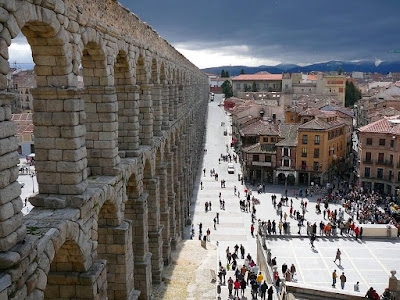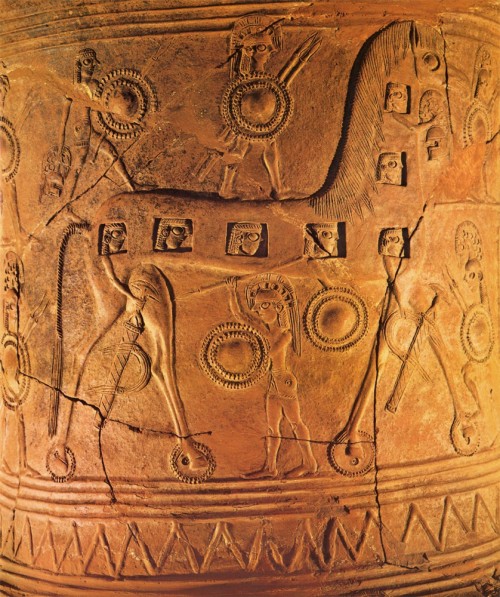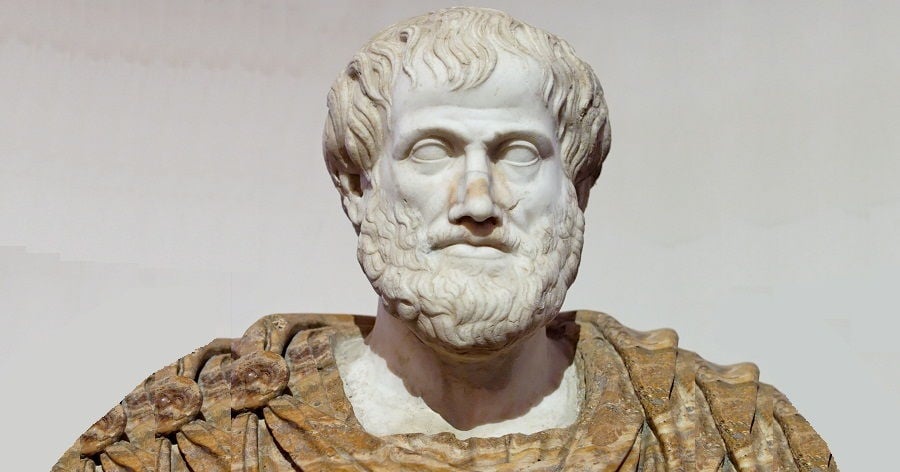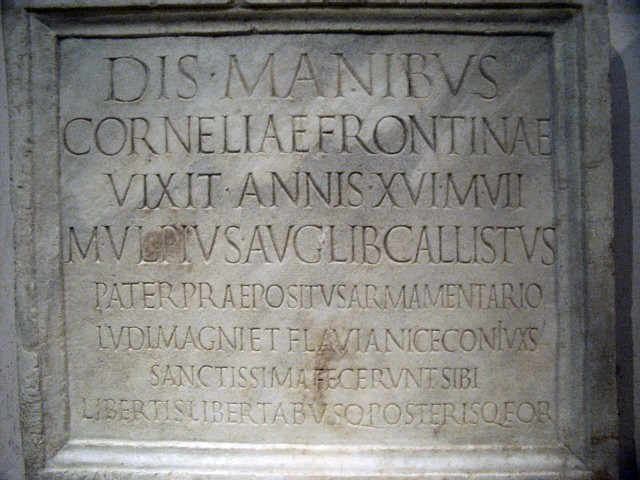 |
| Villa San Marco (and the Lukeion Educational Tour group) |
Thomas Jefferson was more than the architect of our Declaration of Independence; he was also fascinated by real architecture as he imagined the construction of our new nation. He gave considerable thought to crafting buildings to last for generations. Jefferson could have recommended the flowery architecture of European cathedrals or the onion-bulb towers of Russia or even down-to-earth austere Colonial style. Instead, he dreamed up enough columns and capitals to make Caesar himself feel at home.
Certainly, our nation’s founders drew inspiration from the Classical world but particularly Roman ideas were brought to the fore in the late 1700s because two factors came to play at that moment in time. First was Jefferson’s brilliant Classical education in both Latin and Greek. Second, was the unearthing of thousands of mysterious things in northern Italy that had remained hidden since the tragic eruption of Mt. Vesuvius in A.D. 79. Essentially, the rediscovery of all things Rome came to light during our nation’s most formative years.
Pliny (the younger) tells us that one warm August day his uncle Pliny (the elder) noticed a strange cloud in the distance near what is today Napoli, Italy. He observed that this cloud was shaped just like a pine tree. If you haven’t been to Italy, you may not know that there, pine trees are shaped like umbrellas. Pliny was grasping for words to describe this event since such a catastrophe had never been witnessed before. Romans would eventually learn to call this natural disaster a volcano.
Natural curiosity and steadfast Roman bravery would win out over terror on the day of the eruption. Pliny the elder rushed to help the panicked residents of the area as darkness closed in around him and his military craft. Pliny the younger, however, did not go. His uncle had assigned him a writing project so that 17-year-old decided to finish his schoolwork instead of sailing headlong into an exploding mountain. His uncle would not survive the adventure. He himself would provide one of our only eye witness accounts.
The eruption would last for three excruciating days. When it was over, what had once been lush vineyards, pleasant hillsides, and thriving towns—most notably Pompeii and Herculaneum—would look lifeless and ashen like the surface of the moon. The dead remained where they fell, utterly forgotten for seventeen centuries.
In 1738 excavations began in Herculaneum, well before archaeology included any science. Workers knew nothing about the events that placed these items in the ground. Mystery added to the beauty of the discoveries. Soon Europe was engrossed with the ruins of Herculaneum and Pompeii, her sister city, discovered in 1749. As workers uncovered perfectly preserved homes, temples, baths, sculptures and paintings, a remarkable thing happened: the world’s imagination was captured by ancient Rome and, by association, ancient Greece. What had once been forgotten now retook center stage in the minds of the best thinkers and doers of that day.
When Thomas Jefferson was ambassador to France from 1784 to 1789, he took a few well-earned breaks. He scoured France looking at her Romanesque architecture, he toured her Roman ruins, and he voraciously read Classical authors (both Latin and Greek) looking for insight, inspiration, and warning. Having started his Classical education at age 9, he was fluent in Greek, Latin and at least three other languages, skills that would inform every aspect of his career. He too felt the powerful pull of Pompeii and the potent words of Roman authors. Thomas Jefferson and John Adams would work together to craft a constitution with a tripartite system of government which found its roots in Rome. Jefferson himself would introduce the neoclassical style of architecture to the United States.
All this enthusiasm was not just because he thought Roman buildings were majestic, but because he believed that the Roman Republic’s system of checks and balances was a brilliant idea for our new nation. What better model for our architecture? Ever the student of Roman history, he also knew that a nation must be vigilant lest it topples at the hands of a tyrant as Rome once did.
Intellectual souvenirs from his time in France included his design of the Virginia State Capitol, the University of Virginia, and Monticello, his home. He would suggest the name “Capitol” after the Capitoline hill in Rome and would inspire the plan for our Capitol building modeled on the ancient Pantheon of Rome. So, when you look at it this way, from the ruins of Rome and the ashes of Pompeii would come the enduring structures of our nation. At least in some small way, the tragic end of the cities of Vesuvius would inspire the rise of America.
























